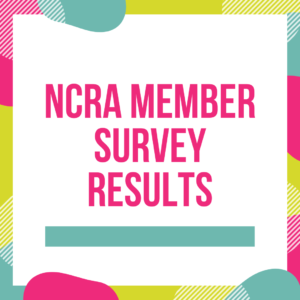By Marianne Cammarota
One of the first things I do when I log on to my computer is check my social media pages. I like to see the beautiful pictures of the flora and fauna of Nevada my friend Karen Yates has posted. I can’t wait to see the Case CATalyst tip Cindi Lynch has posted. And of course, all my stitching friends have posted their wonderful handiwork for me to ooh and aah about. I like to read about what my friends are doing because they keep me on a positive path, they inspire me, and they bring joy into my life.
Social media and technology have brought us all closer together, even though we may be thousands of miles apart or in another country. We are just a click away from our best friends 24/7. It’s so easy to say whatever is at the forefront of our minds, sometimes without thinking about how it may appear to thousands of others who may be reading it.
I have been a reporter for a long time, longer than I like to say. Attorneys in New Jersey know me, and they talk to me about all kinds of things. It is distressing to hear them speak about court reporters texting while reporting a deposition – and I don’t mean during a break. No one would like a plastic surgeon to be texting while getting a rhinoplasty.
I have seen some reporters post messages that are less than courteous responses to others simply because they think their opinion is more worthy. And at the worst end of the spectrum, I’ve read some grievous posts that could be considered criminal in nature.
The profession doesn’t look good when an attorney says, “Do I now have to have a paralegal scanning the court reporter forums for posts about what may have happened during my deposition that he or she feels is unfair, unjust, or just plain doesn’t like me?”
We are sometimes caught up in the nitty-gritty of our everyday reporting life, keeping up with the latest and greatest technology. We must learn all the rules and regulations of our local, state, and national associations and boards. Sometimes all this information bears down on us so heavily that we forget the simplest rules that do us the most good.
Our Code of Professional Ethics states: A member shall maintain the integrity of the reporting profession. Sounds simple and easy. But every time we write an angry response, post a nasty, ill-natured complaint, or do a discourtesy, we chip away at the profession.
A Mexican proverb says, “Tell me who your friends are and I’ll tell you who you are.” If we can keep our posts positive, we can do no harm.
Marianne Cammarota, RDR, CRR, is a freelance reporter in Bridgewater, N.J. and a member of the NCRA Committee on Professional Ethics.








